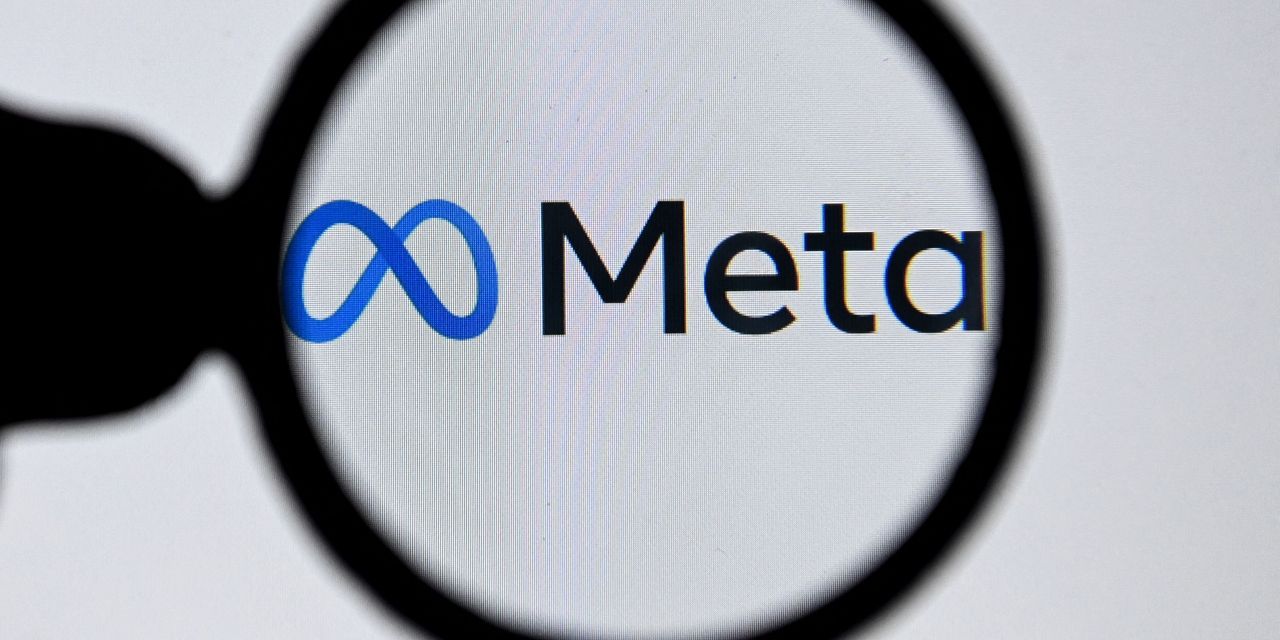It’s official: Meta Platforms Inc. plans to spend boatloads on building out artificial-intelligence infrastructure next year, even as it admits that the advertising landscape could be choppy.
The company expects to unleash $30 billion to $35 billion on capital expenditures next year, above the $27 billion to $29 billion that management is targeting for this year. That growth will come in part from investments in AI hardware as Meta
META,
ramps new data-center architecture, Chief Financial Officer Susan Li shared on Meta’s earnings call.
Wall Street already had a feeling that Meta would be shelling out big bucks on 2024 capital spending, as the consensus forecast called for $33.8 billion. But Meta’s confirmation of its plans lays bare the eye-popping figure, which comes as the company faces an uncertain ad market.
The Facebook parent company gave Wall Street the jitters Wednesday when it said the war in the Middle East was contributing to softer ad spending and overall uncertainty, commentary that helped turn Meta shares 3% lower despite better-than-expected earnings that reflected the company’s year of austerity.
Meta’s earnings per share increased 168% in the third quarter, but that sort of growth could be harder to come by next year as the company ramps spending. Not only will the Meta of 2024 be facing tougher comparisons to a period when it got leaner, but the company will also be racking up higher bills for its capital expenditures in a potentially rocky ad market.
Wall Street may have gotten somewhat numb to Big Tech’s big-spending ways. Meta forecast 2024 total expenses of $94 billion to $99 billion, a staggering range, but one that actually came in below what some had expected.
“Management continues to exercise cost discipline while investing in key areas such as AI/ML [machine learning] projects and Reality Labs,” said Baird’s Colin Sebastian in a note to clients. “Investors were fearing potential costs at or above $100 billion.”
But it’s hard to see Meta’s Reality Labs approach as particularly disciplined. That unit, which houses virtual-reality headsets, its Ray Ban Meta smart glasses, and its Horizon software for the Metaverse, reported another operating loss of $3.7 billion on revenue of just $210 million in the third quarter.
When asked by an analyst if any of the spending in Reality Labs would benefit Meta’s profitable apps like Facebook and Instagram, Li noted that the avatars created in that business will become increasingly important across all its apps, and its Ray Ban Meta smart glasses can capture video content that can be shared across social media.
For now, that statement seems like an incremental use of a technology that the company is spending buckets to develop, especially when users already seem pretty prolific uploading videos from their phones.
Meta’s spending plans will also have ripple effects across the technology sector. Companies like Nvidia Corp.
NVDA,
Super Micro Computer Inc.
SMCI,
and Arista Networks Inc.
ANET,
should benefit from the company’s capex priorities, though their stock declines Wednesday would suggest that Wall Street’s expectations may have gotten ahead of themselves as far as the rewards they would reap.
Shares of Nvidia, the maker of graphics processor units (GPUs) that are widely favored to run in AI data centers, were down about 2% after Meta gave its spending outlook. Shares of Super Micro, a maker of server and racks especially tuned for AI and a company that’s estimated to get at least 10% of its revenue from Meta, were down roughly 2% as well.
And Arista Networks seemed the biggest loser, with its shares down over 5%. Wells Fargo analyst Aaron Rakers noted that 26% of the networking company’s revenue last year came from Meta.
Meta and other tech giants may have conditioned Wall Street to expect big spending targets, but investors are at the same time about to see the true cost of adapting data centers to accommodate AI applications.
If ad spending comes down due to geopolitical tensions or broader macroeconomic factors, Meta might have a harder time justifying hefty expenses in pursuit of AI dreams that stretch farther into the future.
And if Meta ends up wavering on its plans, it’s clear that tech companies dependent on AI windfalls will get affected too.
Read the full article here











Leave a Reply